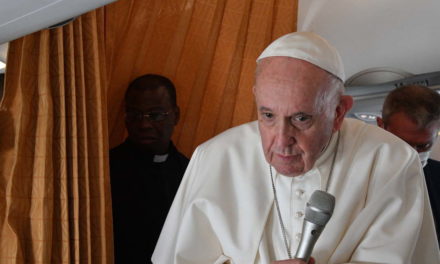Peter and Judas stand out from the Gospel story because they both betrayed Jesus on that fateful Thursday. Both men faced critical choices.
There is so much to love about St. Peter, the humble fisherman who so often responded thoughtlessly to Jesus' words, but was always quick to apologize and try again! His faithful endurance qualified him to be the first Pope.
One of the most compelling parts of his story is when he betrayed Christ before the crucifixion, but most importantly what he did after the betrayal.
Peter and Judas both betrayed Jesus on that fateful Thursday. Judas sold the Lord for 30 pieces of silver (Mt 26:15), and Peter denied him three times that night (Lk 22:54-62).
Having sunk so low, both men are faced with a critical choice as to how they will next respond to the consequences of their actions. They may repent of their sins and beg for God's forgiveness, which requires great humility, or they may harden their hearts even further, thinking that their sin is beyond God's ability to forgive, which shows that they are proud and do not trust God. We know from the Gospels that Peter chose the former, while Judas chose the latter.
Therefore, Peter became the great saint and first pope of the Church, while the name of Judas means "traitor" forever.
Their betrayal is similar, but their different responses to it make you think. Pope Francis has spoken several times about paying attention to the "little Judases" hiding in our hearts.
The story of the two men has some very important lessons for us.
Loyalty in the little things
Judas is a mysterious figure. How could someone who was so close to Jesus become so evil? The Catholic Encyclopedia explains it this way:
Although nothing can alleviate the guilt of a great betrayal, it can be made more understandable if we look at it as the consequences of gradual failures in smaller things.
No wonder Jesus often warns his disciples to be faithful in small things.
"He who is faithful in the least is faithful in the great. He who is unfaithful in the little things is also unfaithful in the big things." (Luke 16:10)
When we become unfaithful to God's will in small things, these things slowly but surely slip out of our control and can become bigger sins.
To humbly ask for God's mercy
We have a foolish pride in thinking that our sin is too great for God to forgive. Jesus made it clear again and again that no action can be outside of his mercy, as the Catechism puts it:
"God's mercy has no limits, but whoever willfully refuses to accept it in repentance, refuses the forgiveness of his sins and the salvation offered by the Holy Spirit. Such hardening can lead to ultimate impunity and eternal damnation.” (1864)
What is a "tender heart" open to God? A spirit that allows God's mercy into the most hidden corners of the heart, which we often say do not even exist.
We ask for Saint Peter's intercession and guidance on how to entrust ourselves to the limitless and infinite mercy of our Lord.
Translated by: Szonja Ujvári
Source: Aleteia.org/zarandok.ma
Featured Image: YouTube screenshot from Mel Gibson's film Passio













